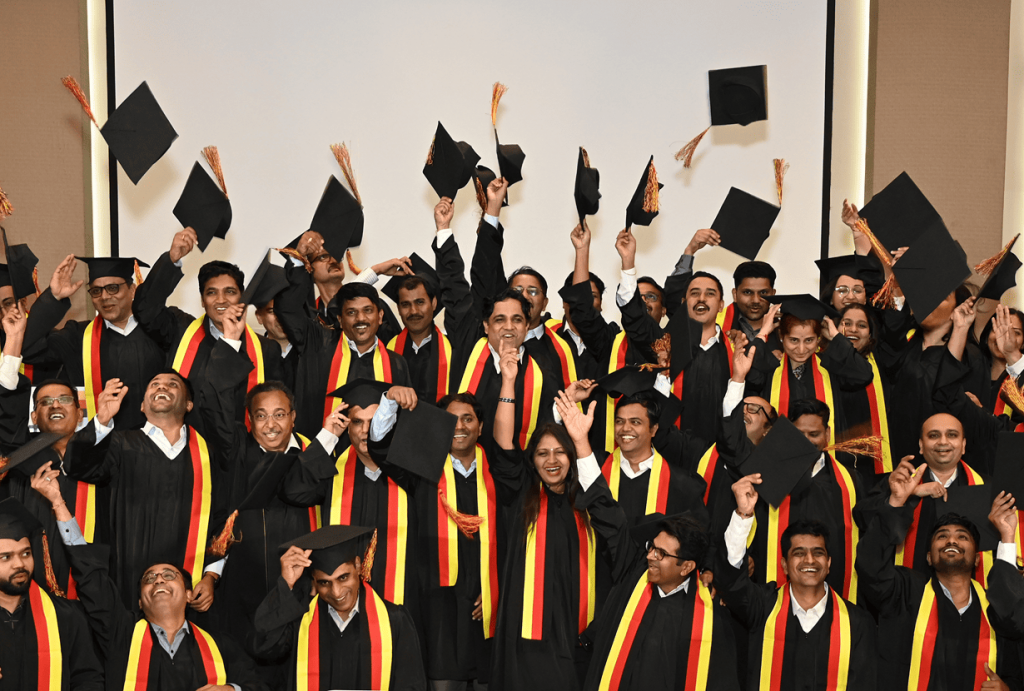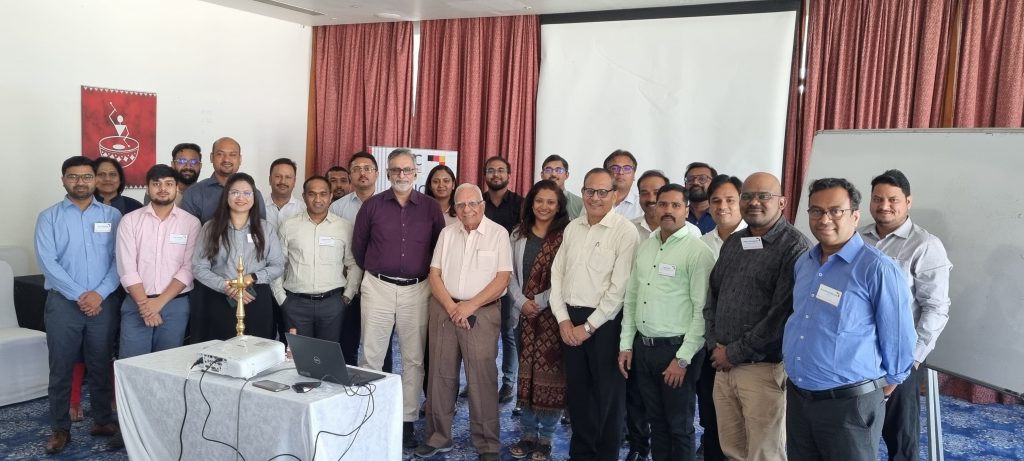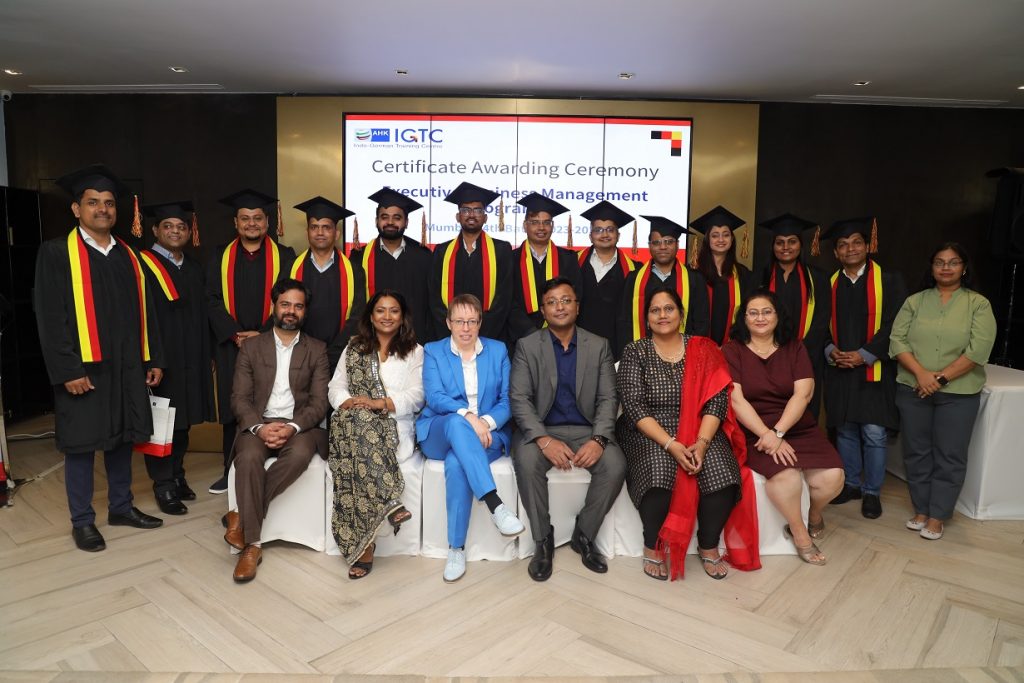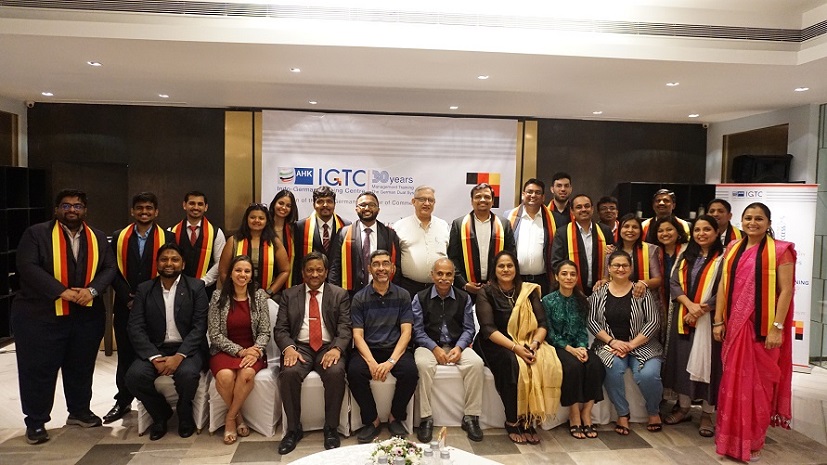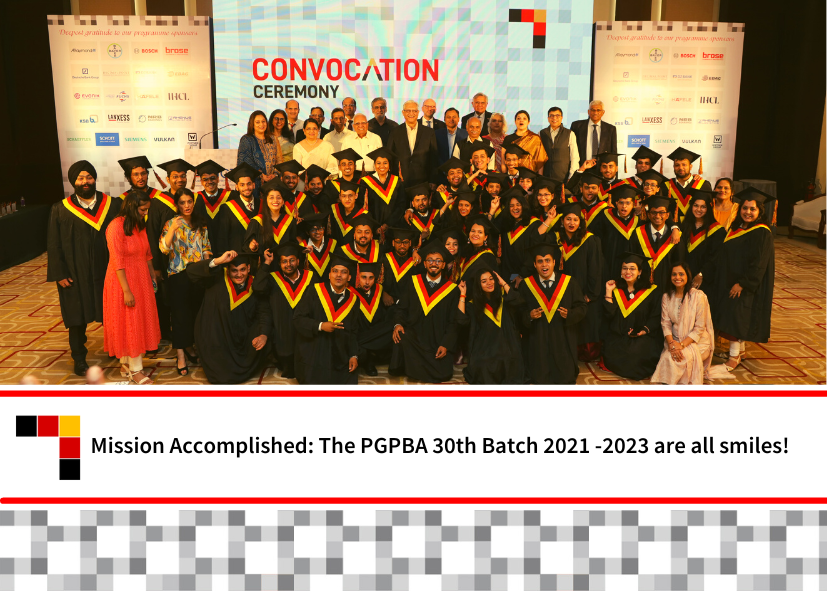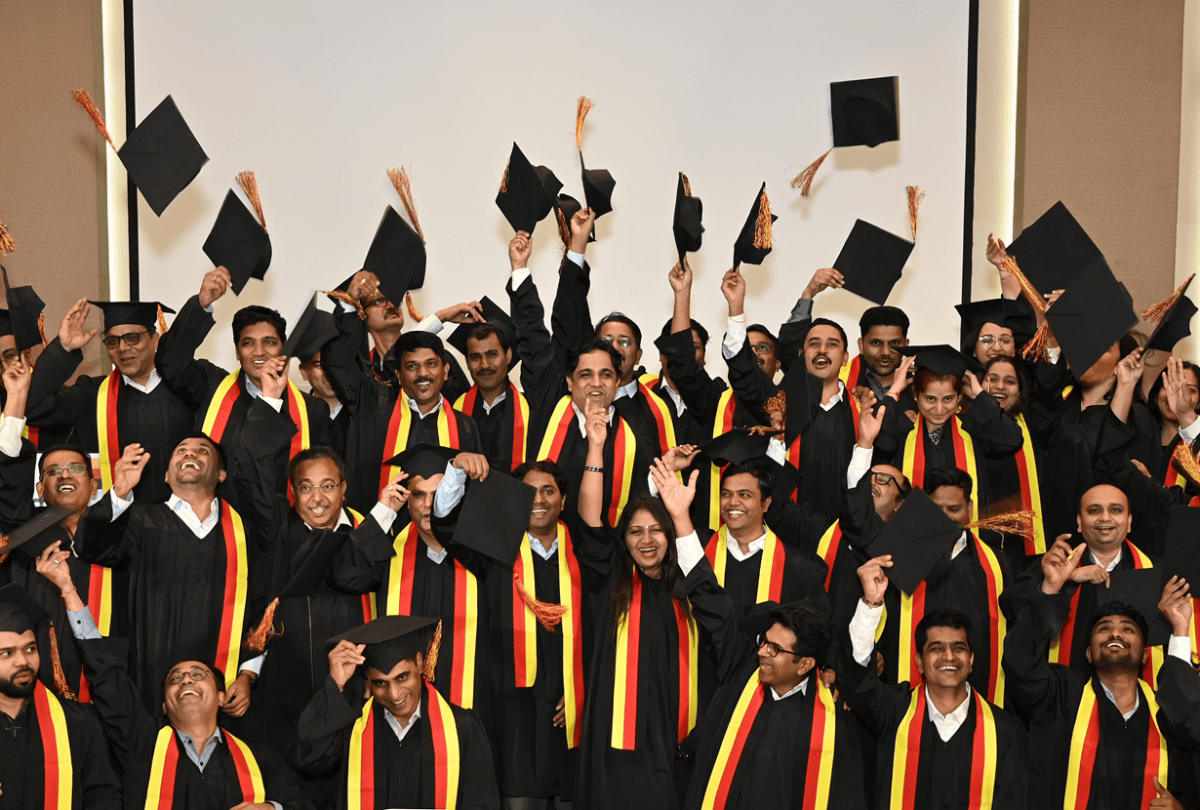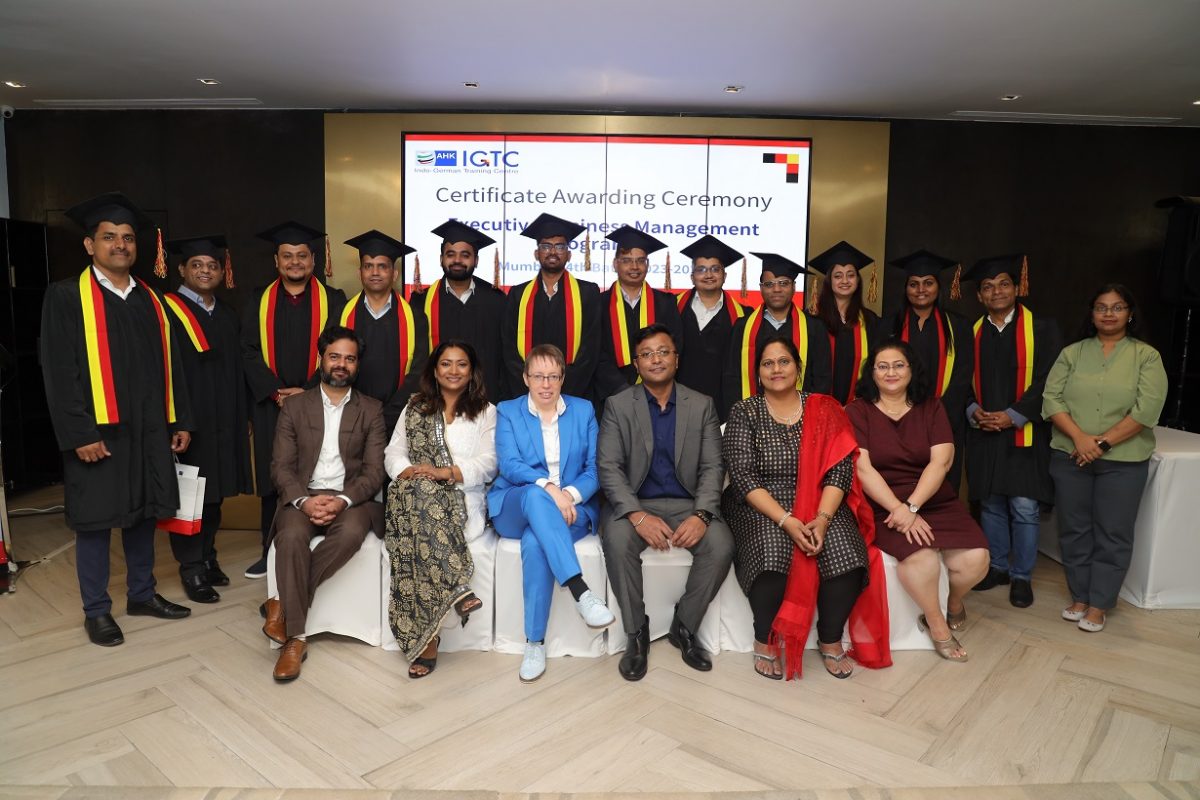BASF, the largest chemical giant in the world, took the PGPBA Batch of 2019 – 2021 on an unusual corporate expedition; one spanning 6 lectures. This journey familiarized us with the ethics and principles that are so firmly ingrained into the moral fabric of the organization.
Over the last 4 semesters, we had learnt in great detail the importance of corporate governance and values via our curriculum in various functional areas. The final milestone before graduation, was learning how to incorporate ethics in each of these functions from the BASF stalwarts. BASF India brought to light the importance of ethics and values through live examples and numerous case studies in areas like Marketing & Communications, Procurement, Legal & Compliance, Finance and Human Resources. BASF has now set high benchmarks for us in our personal and professional lives. Today, it is an undisputed fact that whenever every IGTCian thinks of Ethics, they will first think of BASF.
Opening lecture by Mr. Krishnamohan Narayan, Managing Director BASF India
The series commenced with an interactive session with Mr. Krishnamohan Narayan emphasizing the underlined principle that when a business is built on CORE values it tends to survive in the long run; as compared to companies that look for shortcuts and instant profitability. As a man of his word, he stood for ethics over profitability when asked to choose between the two. Business Ethics are truly tested when the contract rightly favours both parties signing the contract. Companies today must have a futuristic view and with the present environmental crisis following the compliance norms would be the only way to survive.
Marketing & Communication Lecture
Mr. Bhavik Doshi and Ms. Deepti Shetty in their opening remarks added that in the online space how a person or a brand communicates, effects the audience perception. This was demonstrated through Hindustan Unilever’s response to the Green Peace onslaught on their brand Dove; for harming the environment. Hindustan Unilever was tactful by not responding immediately while simultaneously taking required steps to become a more sustainable brand. This taught us how fragile a brands image truly is and sometimes it is better not to react as any further communication could be detrimental to the company. In contrast, today individuals prefer following faces associated with the brand rather than the brand itself; personal marketing is now taking precedence over brand marketing, and this is visible through the examples of Elon Musk, Vishal Sikka, Chanda Kochhar etc.
Legal & Compliance Lecture
This session focused on SEBI Regulations and the Code of Conduct presented by Mr. Pankaj Bahl and Mr. Pradeep Chandan. It began with an explanation of corporate governance encompassing stakeholders, communities, transparency, values, processes and practices followed by the organization. It enhances customer centricity, partnerships, shareholder value & community and environment responsiveness; companies have severely neglected their responsibility towards the community and the environment. CSR and corporate governance was brought into SEBI regulations; it remains a compliance as every individual has different integrity. This was demonstrated through the example of ENRON, where employees inflated financials and made fraud representations, resulting in bankruptcy in 4 years. Hence it is up to individual corporates to comply in order to sustain.
Procurement Lecture
The procurement session by Mr. Venkateswaran Srinivasan and his team made us introspect on our day-to-day behavior. The Kahoot activity gave us insights on how often we choose to be unethical when it comes to mundane tasks like following traffic laws or travelling in trains without a ticket. The team pointed that it is more likely to be unethical in the procurement department, here is where ethics are put to the test. Procurement deals with suppliers on a daily basis where cost and quality manipulation is most likely; the role play highlighted the importance of buyer awareness in such a transaction. A discussion on compliances by both internal as well as external stakeholders revealed that no matter how big or small a part of BASF you are, ethics always takes priority.
Finance Lecture
Ms. Meenakshi Mishra began with an explanation on the increasing financial scams in the VUCA world; a small change in a numerical can drastically alter the image of an organization for the worst. The Code of Conduct is essential especially for senior management; this helps to keep a check on individual ethical practices. The Code of Conduct governs Financial Reporting at the organization with respect to forex volatility, incorrect practices, misreporting, unauthorized transactions, outsourcing risks and fraud processes; and its associated policies. The Approval Matrix ensures zero unauthorized transactions, with the accountability lying with multiple managers.
Human Resources Lecture
The series concluded by Ms. Nalini Nutan and Mr. Samsundar Palaparthi addressing how the path to robust ethical culture begins with Human Resources. A company’s beliefs and values are truly tested in the face of pressure; this was explained using the Iceberg model which states that 80% of an individual’s behaviour is dependent on beliefs and values; 20% is based on skills acquired. They also highlighted the need for a whistle-blower policy for employee protection. We had the opportunity to analyze the mistakes that Jet Airways made and also learnt how the case would be different had the organization followed ethical corporate governance and cared for the staff that had displayed loyalty toward the organization for years.
Through this series we learned the importance of a detailed Code of Conduct which can answer questions that may arise amongst employees when faced with a dilemma. We also understood the importance of hiring individuals whose personal goals and values align with that of the company. It goes without saying, BASF left us with some unforgettable lessons that we will take ahead in our personal and corporate lives.
The end of the BASF lecture series marked the end of our time at IGTC and the start of our journey in the real world where these lessons will help us navigate our way to success.


